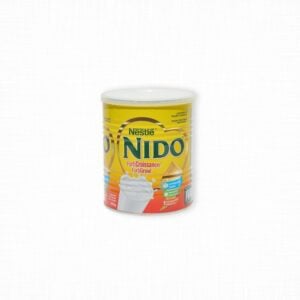-
 Nestle Nido Milk Powder 400g
×
₵128.001 × ₵128.00
Nestle Nido Milk Powder 400g
×
₵128.001 × ₵128.00

Wound care sprays are topical solutions designed to cleanse, disinfect, and promote healing in minor cuts, abrasions, burns, and other skin injuries. They offer a convenient and hygienic method for wound management, reducing the risk of infection and facilitating the body’s natural healing processes.
Price: ₵125.00

Description:
Wound care sprays are topical solutions designed to cleanse, disinfect, and promote healing in minor cuts, abrasions, burns, and other skin injuries. They offer a convenient and hygienic method for wound management, reducing the risk of infection and facilitating the body’s natural healing processes.
Prescription:
Most wound care sprays are available over-the-counter (OTC) and do not require a prescription. However, formulations with higher concentrations of active ingredients or specialized compounds may necessitate a doctor’s prescription.
Therapeutic Category:
Antiseptic
Disinfectant
Wound cleanser
Active Ingredients/Composition:
Common active ingredients in wound care sprays include:
Hypochlorous Acid (HOCl): Known for its antibacterial and anti-inflammatory properties, hypochlorous acid is effective in reducing bacteria and promoting wound healing.
Chlorhexidine Gluconate: A powerful antiseptic that combats bacteria, fungi, and some viruses by disrupting their cell membranes.
Povidone-Iodine: An antiseptic effective against a broad range of pathogens, commonly used for skin disinfection.
Benzalkonium Chloride: A quaternary ammonium compound used as a disinfectant and antiseptic in various wound care products.
Vitamins: Standard wound care sprays typically do not contain vitamins.
Minerals: These sprays generally do not include minerals in their formulations.
Variant: Wound care sprays come in various formulations tailored for specific uses, such as:
Antiseptic sprays for general wound cleansing.
Burn sprays designed to soothe and protect minor burns.
Scar reduction sprays aimed at minimizing scar formation during the healing process.
Consume Type: These products are intended for external topical application only and should not be ingested or applied to mucous membranes unless specified.
Directions/Usage:
Clean the Wound: Gently rinse the affected area with water to remove debris.
Apply the Spray: Hold the spray bottle a few inches away from the wound and apply a light, even coating over the entire area.
Allow to Dry: Let the solution air dry or gently pat it dry with a sterile gauze pad.
Repeat as Needed: Follow the manufacturer’s instructions regarding the frequency of application.
Common Side Effects: While generally safe, some users may experience:
Mild skin irritation or redness at the application site.
A temporary stinging or burning sensation upon application.
Allergic reactions, though rare, can occur and may manifest as severe itching, swelling, or rash.
Package Type: Wound care sprays are commonly available in:
Plastic or metal spray bottles with pump mechanisms.
Aerosol cans for continuous spray application.
Single-use ampoules or vials for sterile, one-time use.
Storage Advice:
Store at room temperature, away from direct sunlight and heat sources.
Keep the bottle tightly closed to prevent contamination.
Ensure the product is out of reach of children and pets.
Safety Advice:
Avoid contact with eyes, ears, mouth, and other mucous membranes.
Do not apply to deep puncture wounds, serious burns, or animal bites without consulting a healthcare professional.
Discontinue use and seek medical advice if signs of infection (e.g., increased redness, swelling, pain, or pus) develop.
If an allergic reaction occurs, stop use immediately and consult a healthcare provider.
Product Substitutes: Alternative wound care options include:
Antiseptic Ointments/Creams: Such as those containing bacitracin or neomycin.
Hydrogen Peroxide Solution: Used for initial wound cleansing to remove debris.
Saline Solution: A gentle option for irrigating wounds without causing irritation.
Manufacturer/Marketer:
Various pharmaceutical and healthcare companies produce wound care sprays. Notable brands include Betadine (povidone-iodine), Bactine (lidocaine and benzalkonium chloride), and Microdacyn (hypochlorous acid).
Country of Origin:
Wound care sprays are manufactured worldwide, with production facilities in countries such as the United States, Germany, Switzerland, and Japan. The country of origin varies depending on the brand and manufacturer.
Do you have any questions? Do not hesitate to contact us.
Reviews
There are no reviews yet.